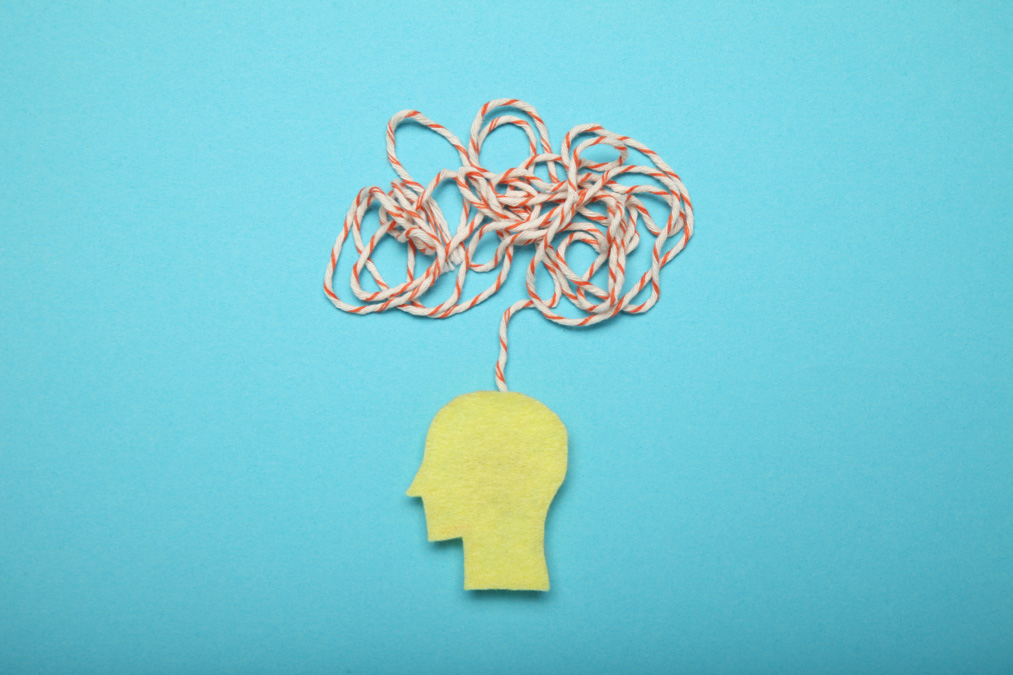Understanding the Overconfidence Effect
Definition of the Overconfidence Effect
The Overconfidence Effect refers to a cognitive bias where an individual’s subjective confidence in their judgments is greater than their objective accuracy. This phenomenon often leads to errors and misjudgments, affecting various decisions and behaviors.
Importance of Understanding Overconfidence in Various Sectors
Recognizing the Overconfidence Effect plays a crucial role in multiple sectors. In finance, overconfident investors may engage in risky trades, believing they possess superior knowledge. Additionally, in healthcare, doctors who overestimate their diagnostic skills might overlook critical patient information. Understanding this bias helps mitigate potential negative outcomes because it allows for more informed and balanced approaches.
Overview of the Article
This article delves into the Overconfidence Effect by examining its historical context and psychological underpinnings. Moreover, it distinguishes between confidence and overconfidence, exploring how the latter influences decision-making. We shall navigate through various types of overconfidence, discuss their root causes, and analyze their impacts across different professional and personal domains. Additionally, the article will provide strategies for recognizing and mitigating this bias, supplemented by relevant case studies for practical understanding.
Understanding the Overconfidence Effect
Historical Context of the Overconfidence Effect
The Overconfidence Effect has intrigued scholars for centuries because its roots stretch back to ancient philosophical inquiries. Before psychological research formally examined it, historical figures noted how this phenomenon influenced human actions. In recent decades, the study of overconfidence became more structured, offering keen insights into its pervasive nature.
Psychological Basis of Overconfidence
The mind can trick individuals into thinking they are more capable than they truly are. This stems from several psychological mechanisms that bolster the ego. Despite one’s genuine skills or talents, cognitive shortcuts result in an inflated self-perception. Researchers attribute this to the mind’s efforts to uphold self-esteem and simplify complex reality.
Importance of Distinguishing Confidence from Overconfidence
Distinguishing confidence from the debilitating grasp of overconfidence is crucial. During decision-making, genuine confidence can guide successful actions, while its exaggerated form may lead to failures. Moreover, the line separating these two traits is thin, requiring careful assessment and self-awareness to maintain a balanced approach.
Types of Overconfidence Effect
Overestimation
The first type of the Overconfidence Effect is overestimation, which occurs when individuals believe their abilities or outcomes are better than they truly are. This can lead to risky decisions as one might take on tasks that exceed their actual skill level. Additionaly, overestimating one’s capability can cause a disconnect between expectation and reality, resulting in disappointment or failure. Recognizing this can aid in aligning expectations with reality.
Overplacement
Overplacement refers to an individual’s belief that they are better than others. This aspect of the Overconfidence Effect can foster competition and jealousy in professional and personal settings. Despite the competitive edge it might offer, it often blinds individuals to their own weaknesses. Awareness of this tendency allows for a fair comparison and more realistic self-assessment.
Overprecision
The third type, overprecision, involves an exaggerated certainty in one’s knowledge or assumptions. During decision-making, this can result in overlooking valuable information or alternative options. Because of this unwavering conviction, individuals may refuse to adapt to changing situations. Developing tolerance for ambiguity and uncertainty can reduce the negative impacts of overprecision.
Causes of the Overconfidence Effect
Cognitive Biases
The Overconfidence Effect often arises from various cognitive biases. Confirmation bias, for example, encourages individuals to seek information supporting pre-existing beliefs, leading to skewed perceptions of their abilities. Hindsight bias also plays a role, as people often view past events as predictable after they occur, which inflates their confidence in forecasting future events.
Personality Traits
Personality traits significantly contribute to overconfidence. People with high levels of self-esteem and narcissistic tendencies may overestimate their capabilities and knowledge. Additionally, individuals who display optimism without considering potential pitfalls often fall prey to this psychological trap, exacerbating the Overconfidence Effect.
Social and Cultural Influences
Social and cultural factors are also paramount in magnifying the Overconfidence Effect. In cultures that value assertiveness and self-reliance, individuals might prioritize confidence over accuracy. Furthermore, during group settings, social validation can reinforce overly confident behavior, leading to collective decision-making that overlooks potential risks.
Impacts of Overconfidence Effect
Decision-Making Processes
The Overconfidence Effect significantly influences decision-making processes, often leading individuals to underestimate risks or overestimate their own knowledge and abilities. This can result in flawed judgments and poor outcomes as decisions are made based on misplaced certainty. For example, in financial investments, it may lead to unnecessary risks. Recognizing the tendency to be overly confident is crucial, as it helps balance optimism with realistic assessments. Moreover, implementing strategies to counteract overconfidence ensures more accurate evaluations and better decisions.
Professional Environments
In professional settings, the Overconfidence Effect can create unrealistic goal-setting or misjudging the capabilities of oneself and others. Such overconfidence can foster an environment where errors are dismissed or critical feedback is neglected. In addition, it may inhibit learning from past experiences. Encouraging humility and seeking diverse inputs from team members can mitigate these effects, leading to improved performance and collaboration.
Personal Relationships
The Overconfidence Effect can also impact personal relationships, by causing individuals to overestimate their social skills or underestimate the value of their partner’s perspectives. As a result, communication may suffer, and misunderstandings can arise. Fostering awareness and promoting open dialogue are essential steps in counteracting these tendencies. By aiming for a balanced view and actively listening to others, individuals can enhance the quality and resilience of their relationships.
Overconfidence Effect in Different Sectors
Financial Industry
The Overconfidence Effect manifests in the financial industry when investors misjudge their ability to predict market trends. Despite historical data showing market volatility, individuals often believe their analyses are superior. This leads to risky investments and financial losses. To mitigate this, firms should promote a mix of self-reflection and empirical analysis among their employees, reducing the reliance on gut feeling. Furthermore, feedback mechanisms should be developed, where decision-making processes are reviewed and adjusted according to measurable outcomes.
Healthcare
Within healthcare, professionals may overestimate their diagnostic skills due to the Overconfidence Effect. During clinical trials or patient examinations, unchecked confidence can result in overlooking critical signs or symptoms. Therefore, introducing collaborative decision-making processes that include second opinions and peer reviews can significantly enhance the quality of healthcare delivery. Through these strategies, medical practitioners can ensure that patient care remains grounded in collective expertise rather than individual overconfidence.
Education
In education, the Overconfidence Effect often appears when educators or students presume complete understanding of a subject without sufficient evidence. Self-assessment techniques can encourage students to critically evaluate their knowledge, recognizing areas needing improvement, before advancing. Additionally, creating an environment that fosters mindfulness and open discussion can help educators and learners alike stay balanced in their confidence levels, ultimately contributing to deeper and more thorough educational experiences.
Entrepreneurship
Entrepreneurs are particularly susceptible to the Overconfidence Effect as they navigate uncertainties inherent in startup ventures. The belief in the inevitability of one’s success can blind entrepreneurs to potential risks and challenges. Implementing observational cues through market research and advisory board inputs could provide a more balanced perspective, thus enhancing decision-making. Conducting regular psychological tests to assess and calibrate personal confidence levels can also play a critical role in ensuring that entrepreneurial activities are grounded in realistic expectations.
Case Study: Overconfidence Effect in Action
Introduction
The Overconfidence Effect can significantly impact decision-making. This case study examines a well-known instance in the entrepreneurial world where overconfidence led to detrimental consequences. By analyzing this case, we uncover valuable lessons applicable to businesses and individuals alike.
Case Background
A promising tech startup burst onto the scene with groundbreaking artificial intelligence software, quickly capturing investor attention. The founders, bolstered by early successes and media buzz, exhibited heightened overconfidence. They believed their product could revolutionize the industry, neglecting potential risks and competitive threats. As a result, budget management was lax, and teams overlooked crucial beta testing phases.
Consequences of Overconfidence
This unchecked overconfidence had significant repercussions. When competitors launched similar products that addressed consumer needs more effectively, the startup found itself with diminishing market share. Investors began to retract funding, and internal morale hit an all-time low. The startup’s growth trajectory stalled, illustrating how overconfidence can derail even the most promising ventures.
Solution and Lessons Learned
To mitigate the adverse impacts of the Overconfidence Effect, the founders initiated a comprehensive strategy. They prioritized self-reflection and agreed to a mentorship program. They implemented robust feedback mechanisms, encouraging team members to voice concerns and ideas. Additionally, the company embraced collaborative decision-making models, ensuring diverse perspectives shaped crucial strategies. These changes helped the startup recover and thrive, demonstrating how recognizing the Overconfidence Effect and taking corrective actions can transform challenges into growth opportunities.

